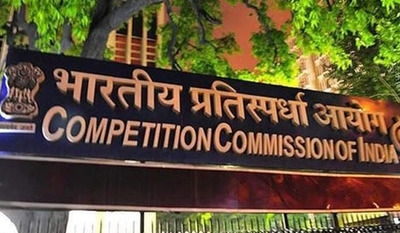
Most of us consider our dogs to be far more than mere pets. They’re not called “man’s best friend” for nothing, after all, and for many, they go beyond friendship, too, becoming something like a child or sibling. In short, dogs become like family members, and when we lose them, we grieve them similarly.
The law, however, differs on this, until now that is. A New York judge recently ruled that dogs should henceforth be viewed as family in the eyes of the law. But while the ruling has pet owners cheering, some legal experts, Pepperdine University law professor Richard Cupp among them, are wary of the potential legal ramifications.
A New York judge has ruled that dogs should be considered ‘immediate family members.’
At first blush, it probably seems like this is common sense and should have been the law anyway. What else are dogs if not family members? But legally speaking, pets are defined as property, which means owners are usually only entitled to monetary damages, like reimbursements for veterinary bills, in the event of death or injury.
The case in New York state, Trevor DeBlase and Nan DeBlase v. Mitchell Hill, centers on this technicality. The case arose after the DeBlases’ dog was struck by a car and killed while Nan DeBlase was crossing a street with the dog on a leash. The DeBlases allege that Hill struck the dog after running a stop sign.
The DeBlases sued for negligent infliction of emotional distress, or NEID, which is almost never awarded unless the plaintiff was physically injured, or they witnessed an immediate family member be injured or killed while they were also in the “zone of danger.”
“Immediate family” was previously defined in New York as a spouse, child, or grandparent, with some wiggle room to consider other family members as well. The judge hence ruled that the dog should be considered to fit the definition, and the DeBlases’ claim for emotional damages should proceed. Professor Cupp said this could set dangerous legal precedents.
: Turns Out Dogs Are Basically Just Hairier, Needier Humans, According To Research
A lawyer said the ruling could make the cost of veterinary care skyrocket.
Many pet owners have cheered the ruling, but Professor Cupp said the potential ramifications stretch far beyond the mere definition of the role our dogs play in our lives. For starters, if the ruling sticks and spreads, it is likely to make the cost of caring for dogs much higher
“Emotional distress damages are often much larger than out-of-pocket damages, like paying for medical bills,” Professor Cupp told us. And that means veterinarians’ malpractice insurance costs will go through the roof.
This is likely part of the reason the New York judge specified that the ruling should only apply to extreme circumstances like the DeBlases, in which the dog was actually tethered to Mrs. DeBlase’s physical person, and that it should never apply to veterinarians.
But intent and impact are two different things, of course. Cupp said the ruling nevertheless could be “a step toward” it being applied to the very circumstances for which it wasn’t intended. Veterinarians and insurers will then have no choice but to account for this possibility and “pass along their increased malpractice insurance costs to pet owners.”
This could also, of course, have a chilling effect on dog owners seeking veterinary treatment, and Cupp pointed out that this is one of the primary reasons the American Veterinary Medical Association has been highly critical of the judge’s ruling, stating that “noneconomic damages” are inappropriate in pet cases.
: 5 Things Your Dog Wishes You Noticed About Their Personality, According To An Animal Communicator
The ruling could also open the door to criminal charges when animals are injured.
It’s an unfortunate reality that dogs and cats get hit by cars all the time. Most of us have experienced it at least secondhand if not directly. I once hit a cat with my car after it dodged directly in front of me. There was simply nothing I could have done to prevent hitting it, despite slamming on the brakes so hard I skidded several feet.
The New York ruling opens the door to something frankly terrifying in situations like these if it survives the appeal that has been filed. “It could serve as a stepping stone toward gradually extending personhood concepts to dogs and cats, and, with even greater societal impact, to all other mammals under human control, including farm animals,” Cupp said.
Monkey Business Images | Canva Pro
What does that mean exactly? For starters, Cupp explained that if we grant personhood to animals, “we should be prepared for changes in our criminal legal system as well to treat animals as persons.” That could mean something like a vehicular manslaughter charge and the jail time to go along with it for having hit that poor cat who ran out in front of me that day.
If we pull the thread even further, we could arrive at an even more bizarre place: If animals are now legally considered people, is that chicken we buy at the supermarket now considered a crime, too? After all, as Cupp pithily put it, “one presumably cannot eat a person.” See you in court for that steak you just grilled!
Hopefully, cooler heads would prevail, of course, but nonetheless, Cupp agreed with the veterinary field that this ruling might not strike the right balance. “I think we are closer to the beginning of a wave of legal evolution to provide more protections for animals… and I think this is a good thing,” he said. “But increasing animal welfare with a strong focus on human responsibility makes much more sense than making animals legal persons.”
: Study Confirms Dogs Are The New Babies
John Sundholm is a writer, editor, and video personality with 20 years of experience in media and entertainment. He covers culture, mental health, and human interest topics.
-
CCI approves acquisition of Jaiprakash Associates Ltd by Adani Group entities

-
CCI approves PSA India takeover, V.I.P. Industries stake deal

-
13th Edition of Gartex Texprocess India: A Step Forward in Textile Automation and Sustainable Development

-
India has 56.75 lakh registered EVs till February 2025: Govt

-
Ongoing shift in retail loans is leading to increase in consumer leverage: Report
